Regulation
SEC Charges AI Founder Ilit Raz for Defrauding Investors $21M
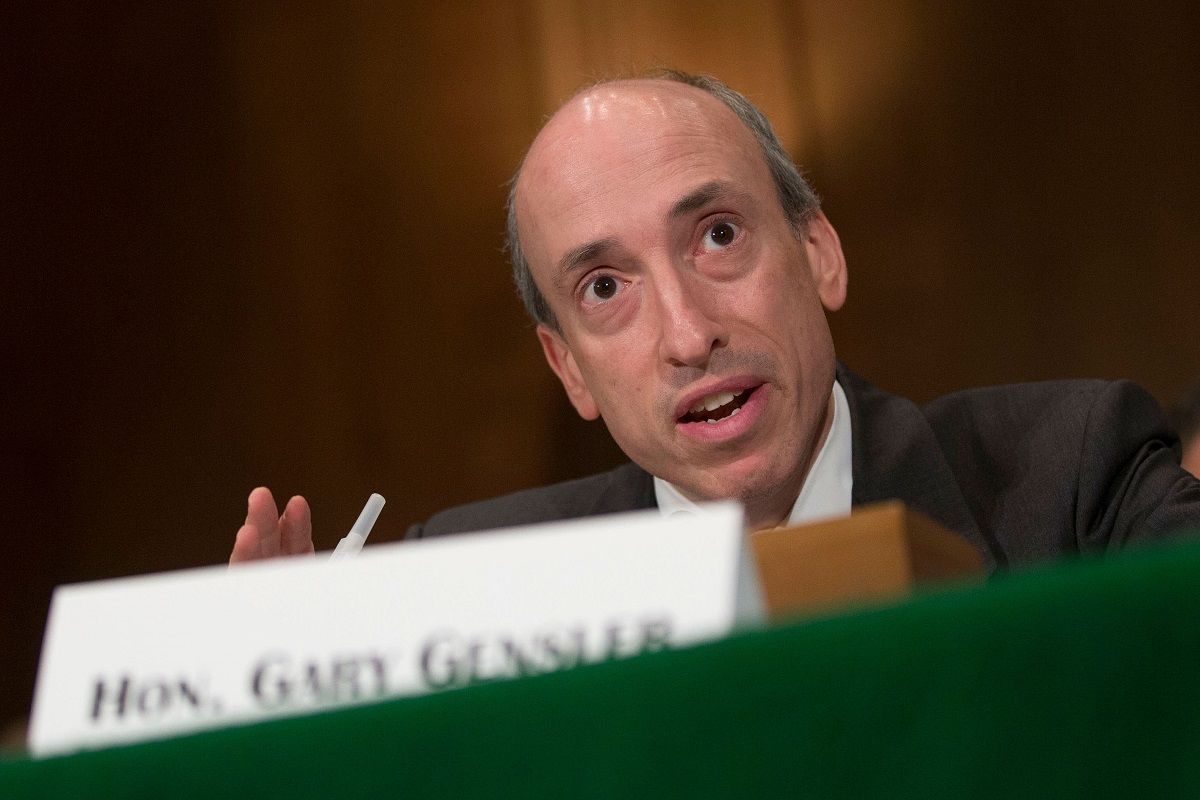
The Securities and Exchange Commission (SEC) has filed a lawsuit against Ilit Raz, CEO and founder of the insolvent artificial intelligence recruitment firm Joonko.
The complaint filed in the U. S. District Court for the Southern District of New York accused Raz of defrauding investors regarding the firm’s financial status and performance indicators, with the fraud amounting to at least $21 million.
SEC Charges AI Startup Founder Ilit Raz
The regulator noted that Raz stated that Joonko had signed up more than 100 corporate clients, including enterprises from the list of the Fortune 500 companies, to get funding for the startup. The company that positioned itself as an AI-powered solution for helping companies find diverse and underrepresented workers was also accused of showing fake investors’ reviews and fake contracts.
Today we charged Ilit Raz, CEO and founder of the now-shuttered AI recruitment startup Joonko, with defrauding investors of at least $21 million by making false and misleading statements. https://t.co/TuQ3zDLDLP pic.twitter.com/e31OAUcBwg
— U.S. Securities and Exchange Commission (@SECGov) June 11, 2024
These fraudulent activities went as far as inflating the company’s revenue and the number of active candidates on the platform, which Raz put at over $1 million and 100,000, respectively.
From the SEC’s documentation, Raz is alleged to have once presented forged bank statements to calm an investor. The plan fell through when the investor asked Raz a question that he could not dodge, and Raz confessed to the use of forged documents and exaggeration of the company’s statistics.
U.S. Attorney’s Office Take Action
The charges addressed against Raz are the violation of federal securities laws. The SEC is asking for a variety of remedies including civil penalties, the return of funds garnarred with interest, and permanent injunctions
Gurbir S. Grewal, Director of the SEC’s Division of Enforcement, pointed out the use of AI-centric terms to orchestrate what he called “old-school fraud.” He also raised concerns that AI-related jargon may create confusion among investors.
Concurrently, the U. S. Attorney’s Office for the Southern District of New York has opened a criminal case against Ilit Raz, which testifies to the serious approach to the accusations.
Enforcement on the AI Technology Market
The events that followed the Joonko case suggest that there is a rising trend of regulatory actions in the AI technology sector.
Moreover, as reported by Coingape, FTC and the Department of Justice, announcements indicate forthcoming antitrust probes into major players like Microsoft, OpenAI, and Nvidia. These investigations are not only directed towards mergers and acquisitions but also towards competitive practices that may hinder innovation or abuse market power.
This regulatory focus is not limited to the United States only. Around the world, the technology companies continue to feel the heat from the regulatory authorities as the governments seek to enforce fair competition and consumer protection in the new digital economy. The current probes into AI and tech companies show a deliberate attempt to deal with the social and moral impact of technological developments.
Read Also: Bitcoin Address Dormant for 5.5 Years Just Sent Half A Billion BTC To Binance
The presented content may include the personal opinion of the author and is subject to market condition. Do your market research before investing in cryptocurrencies. The author or the publication does not hold any responsibility for your personal financial loss.
Regulation
Ripple Whales Move $429 Million, What Is Going On?

Ripple whales have been highly active in recent hours, transferring large amounts of XRP tokens between unknown wallets. In total, 267,857,140 XRP, which, at the time of writing, was approximately $572,238,240, was transferred. These large XRP whales are believed to have a connection to Ripple’s ongoing legal battle and its on-demand liquidity (ODL) sales.
These massive transactions were potentially triggered by the decision of the SEC to lift the injunction against institutional sales for Ripple recently. As a result, Ripple can now proceed with its ODL business, likely contributing to the recent surge in large-scale XRP transfers.
Ripple Whales Move $572 Million
Whale Alert, has recently reported a flurry of XRP transfers. Four transactions were executed within a short span, and every swap was equal to 66,964,285 XRP, which amounts to about $143 million. These huge transactions have elicited quite a stir among the members of the crypto space regarding their size and the frequency.
While the reason behind the transfers is still uncertain, a large volume of XRP moving to unknown wallets could be tied to Ripple’s operations. Given that these moves occurred after the SEC has decided to remove the injunction on Ripple’s institutional sales, a correlation between Ripple’s liquidity management and institutional sales has emerged.
Such large movements have also attracted the attention of the market observers to think that Ripple may be gearing up for expansion of its ’on-demand liquidity’ solution. This could explain why this wave of whale is being observed today based on the firm’s capacity to continue with these institutional sales.
Ripple Legal Victory and Influence on XRP Transactions
Ripple’s legal situation with the U.S. Securities and Exchange Commission (SEC) has been a key factor influencing the company’s operations. Recently, as part of Ripple’s decision to drop its cross appeal against the SEC, the Commission agreed to remove the injunction that had previously restricted Ripple from conducting institutional sales of XRP. This decision paves the way for Ripple to resume its on-demand liquidity services, a core part of its business.
This movement should help Ripple expand the availability of liquidity solutions and its penetration in the international markets. The absence of the injunction will allow Ripple to transact with more XRP with institutional clients, which may be fueling the whale activities.
Subsequently, since Ripple’s ODL platform focuses on large XRP transactions, whales are likely to be engaged in this kind of activity as they provide liquidity. At the same time, Coinbase Derivatives has submitted new applications with the U.S. Commodity Futures Trading Commission (CFTC) to self-certify XRP futures contracts.
XRP Price Trend Amid Whale Movements
XRP’s recent market behavior also reflects these developments, with the cryptocurrency showing signs of strength. According to crypto analyst Casi Trades, after reclaiming the $2.05 support level, XRP price trend has set its sights on the next key resistance level at $2.24.
This level is particularly significant, as it aligns with both the macro and micro wave structures of XRP’s price movements.
Experts are keeping a close eye on XRP’s price action, with some predicting that the currency could break out of its current resistance levels and potentially reach new highs. The next levels to watch include $2.70, $3.05, and eventually $3.80, which could mark a new all-time high for XRP price.
Disclaimer: The presented content may include the personal opinion of the author and is subject to market condition. Do your market research before investing in cryptocurrencies. The author or the publication does not hold any responsibility for your personal financial loss.
Regulation
US SEC Acknowledges Fidelity’s Filing for Solana ETF
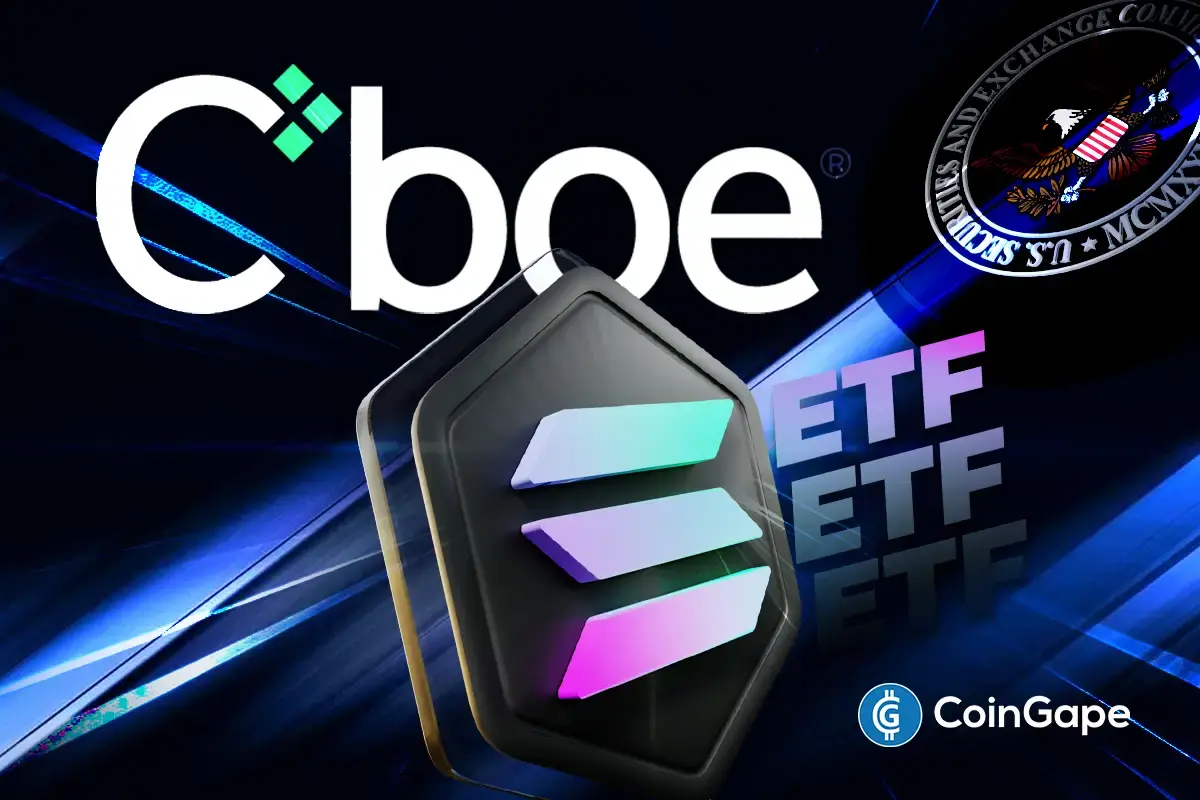
The U.S. Securities and Exchange Commission (SEC) has formally acknowledged the filing for Fidelity’s spot Solana (SOL) Exchange-Traded Fund (ETF).
This marks a key development in the financial industry, as Fidelity seeks to list its Solana ETF on the Cboe BZX Exchange. The acknowledgment comes after Fidelity submitted a proposed rule change, paving the way for the potential approval of the product.
Fidelity’s Spot Solana ETF Proposal
The SEC’s acknowledgment follows Fidelity’s filing to list and trade shares of the Fidelity Solana Fund under the Cboe BZX Exchange. The proposed rule change, initially submitted on March 25, was later amended on April 1, 2025, to clarify certain points and add additional details.
The amended proposal aims to list the Solana ETF under BZX Rule, which pertains to commodity-based trust shares. According to the Cboe BZX Exchange, Fidelity plans to register the shares with the SEC through a registration statement on Form S-1.
Fidelity’s experience with crypto ETFs, having launched the Fidelity Wise Origin Bitcoin Fund (FBTC) and the Fidelity Ethereum Fund (FETH), has prepared it for this new initiative. FBTC has drawn substantial interest, accumulating nearly $17 billion in assets, while FETH currently manages around $975 million.
This Is A Developing News, Please Check Back For More
Disclaimer: The presented content may include the personal opinion of the author and is subject to market condition. Do your market research before investing in cryptocurrencies. The author or the publication does not hold any responsibility for your personal financial loss.
Regulation
US Senate Banking Committee Approves Paul Atkins Nomination For SEC Chair Role
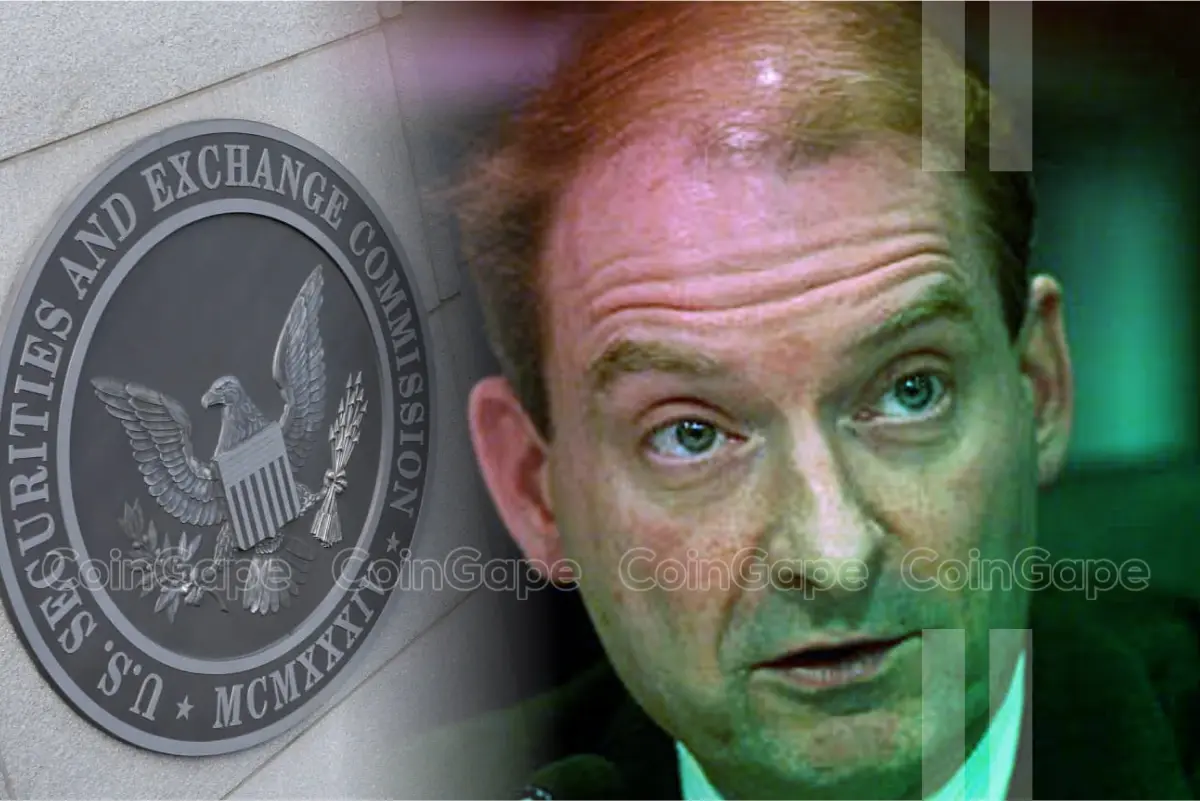
The U.S. Senate Banking Committee has voted to approve Paul Atkins’ nomination for the role of Chair of the Securities and Exchange Commission (SEC). The vote, which took place on Thursday, passed with a narrow margin of 13-11, along party lines.
Paul Atkins, nominated by President Donald Trump, now moves one step closer to taking over the top regulatory position at the US SEC.
Senate Banking Committee Approves Paul Atkins Nomination
Paul Atkins’ nomination for SEC Chair has received approval despite sharp opposition from Democratic members of the Senate Banking Committee. The vote was entirely split, with Republicans supporting Atkins and all Democrats opposing the decision.
This partisan divide highlights the contentious nature of Atkins’ confirmation, which had been under scrutiny for several reasons.
The committee’s approval now clears the path for Atkins to proceed to the full Senate for a final confirmation vote. Given the Republican-controlled Senate, it is widely expected that Atkins will secure the necessary votes to take over the SEC leadership. With Republicans holding a 53-47 majority in the Senate, the confirmation process is anticipated to move forward swiftly.
This Is A Developing News, Please Check Back For More
Disclaimer: The presented content may include the personal opinion of the author and is subject to market condition. Do your market research before investing in cryptocurrencies. The author or the publication does not hold any responsibility for your personal financial loss.
-

 Market17 hours ago
Market17 hours agoWill the SEC Approve Grayscale’s Solana ETF?
-

 Altcoin23 hours ago
Altcoin23 hours agoBTC Holds $84K, ATOM & FIL Become Top Gainers
-

 Market22 hours ago
Market22 hours agoStandard Chartered Calls for Bitcoin Push Above $88,500
-

 Bitcoin21 hours ago
Bitcoin21 hours agoBitcoin Drops as China Escalates Trade War With 34% Tariff on US
-

 Market23 hours ago
Market23 hours agoBTC Futures Show Bullish Sentiment, Options Traders Cautious
-

 Market20 hours ago
Market20 hours agoBitcoin is Far From a Bear Market But not Altcoins, Analysts Claim
-

 Bitcoin20 hours ago
Bitcoin20 hours agoWhy Bitcoin Is Gaining Appeal Amid Falling US Treasury Yields
-

 Market18 hours ago
Market18 hours agoXRP Price Vulnerable To Falling Below $2 After 18% Decline








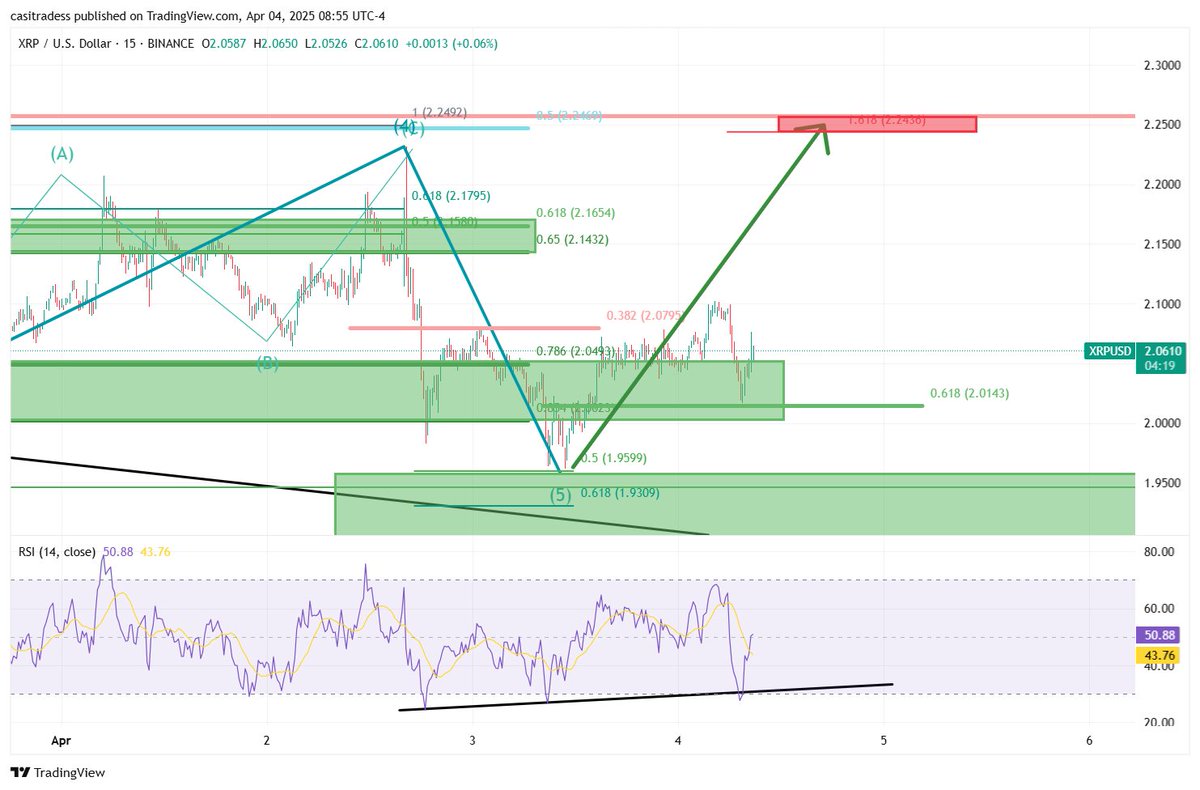


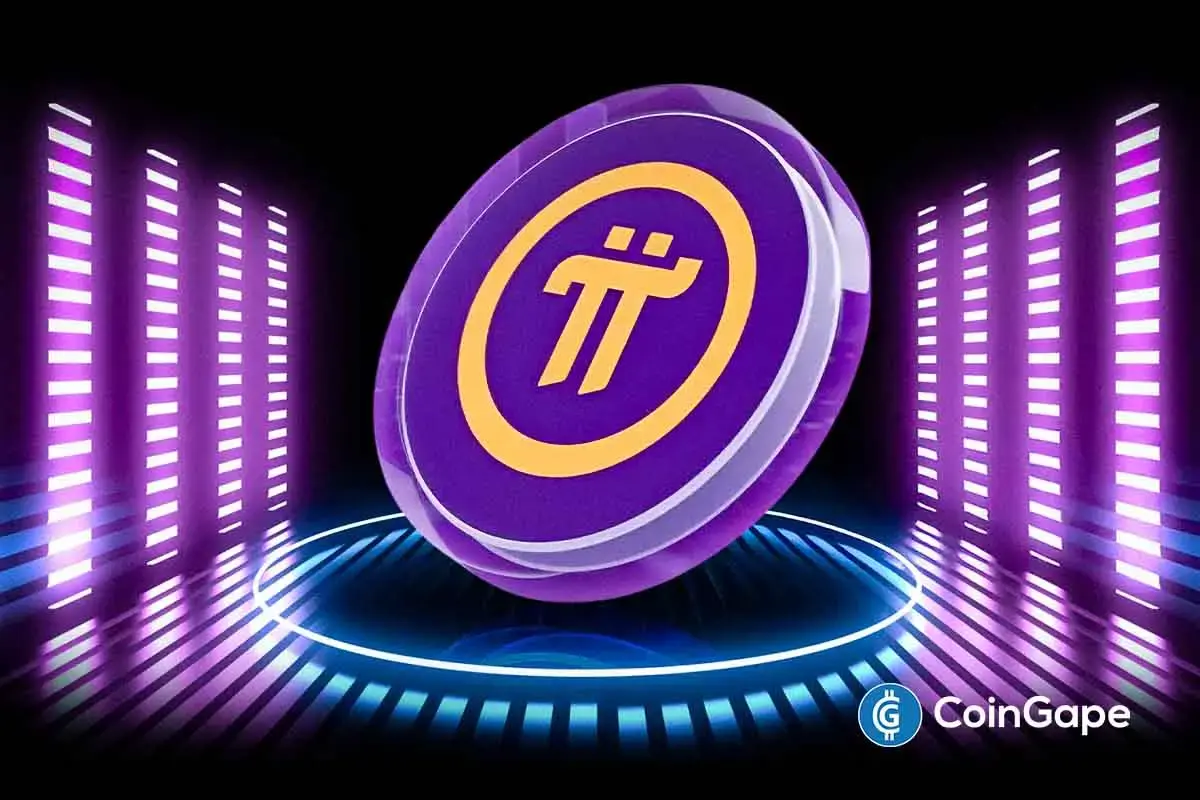








✓ Share: